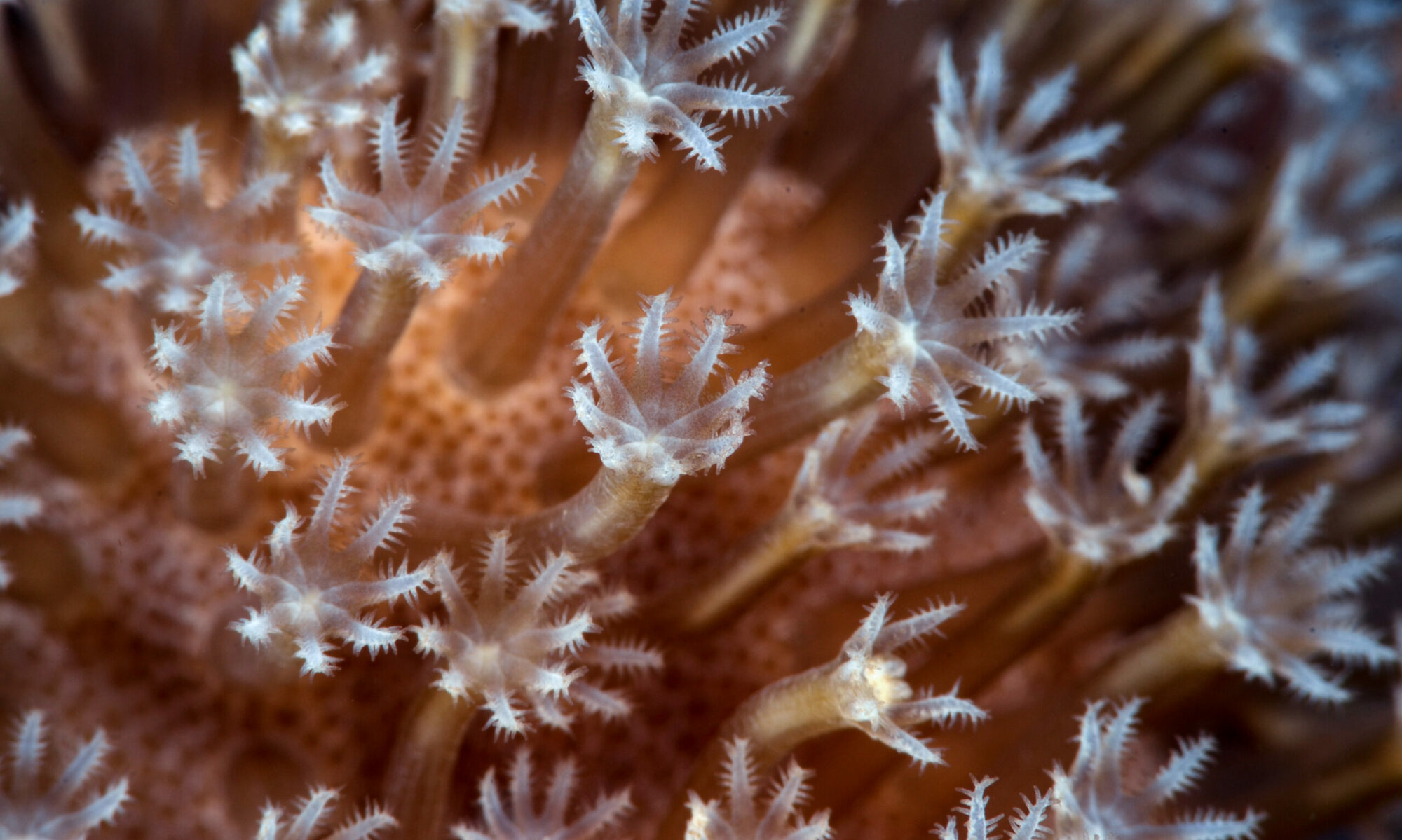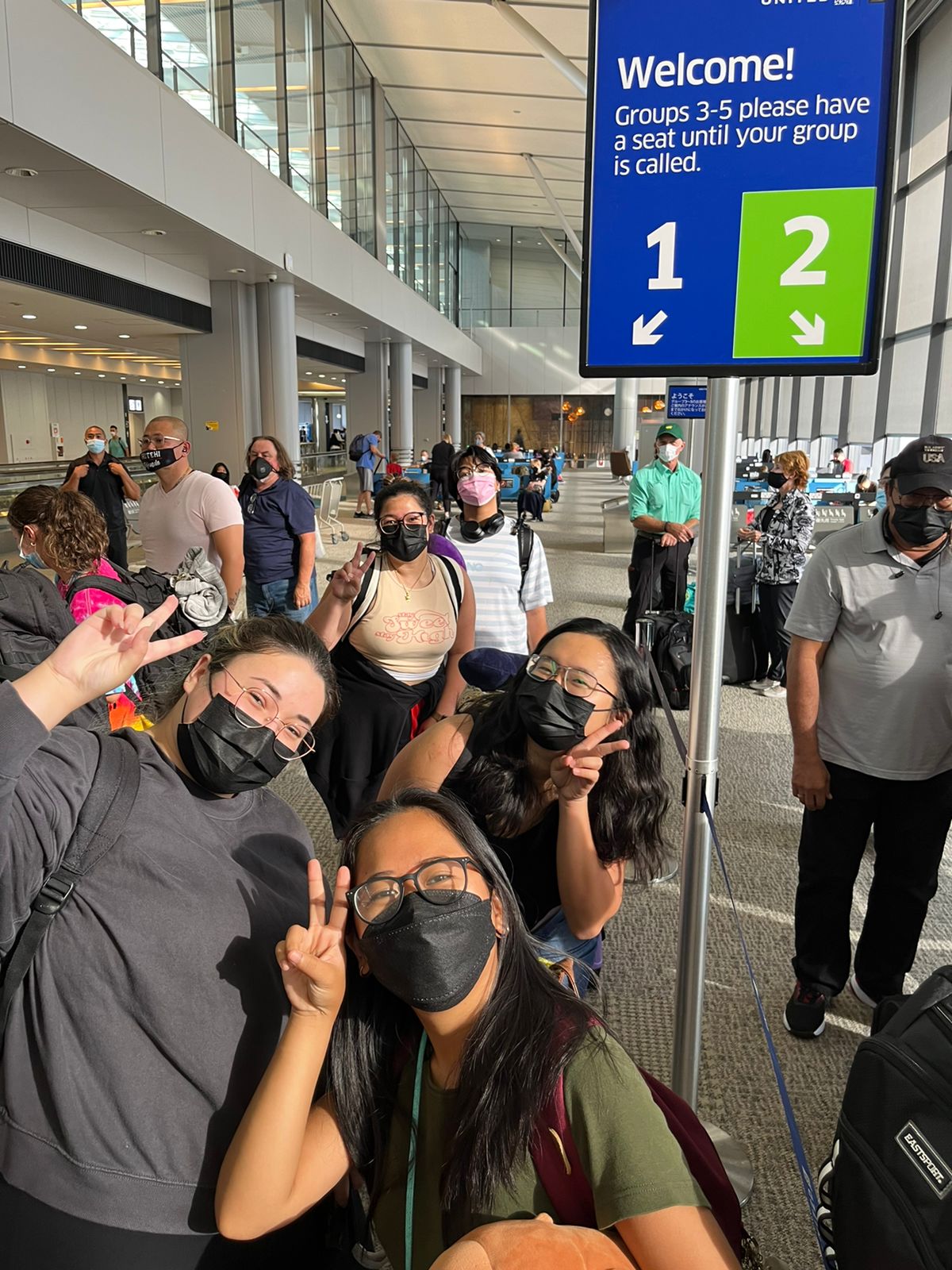
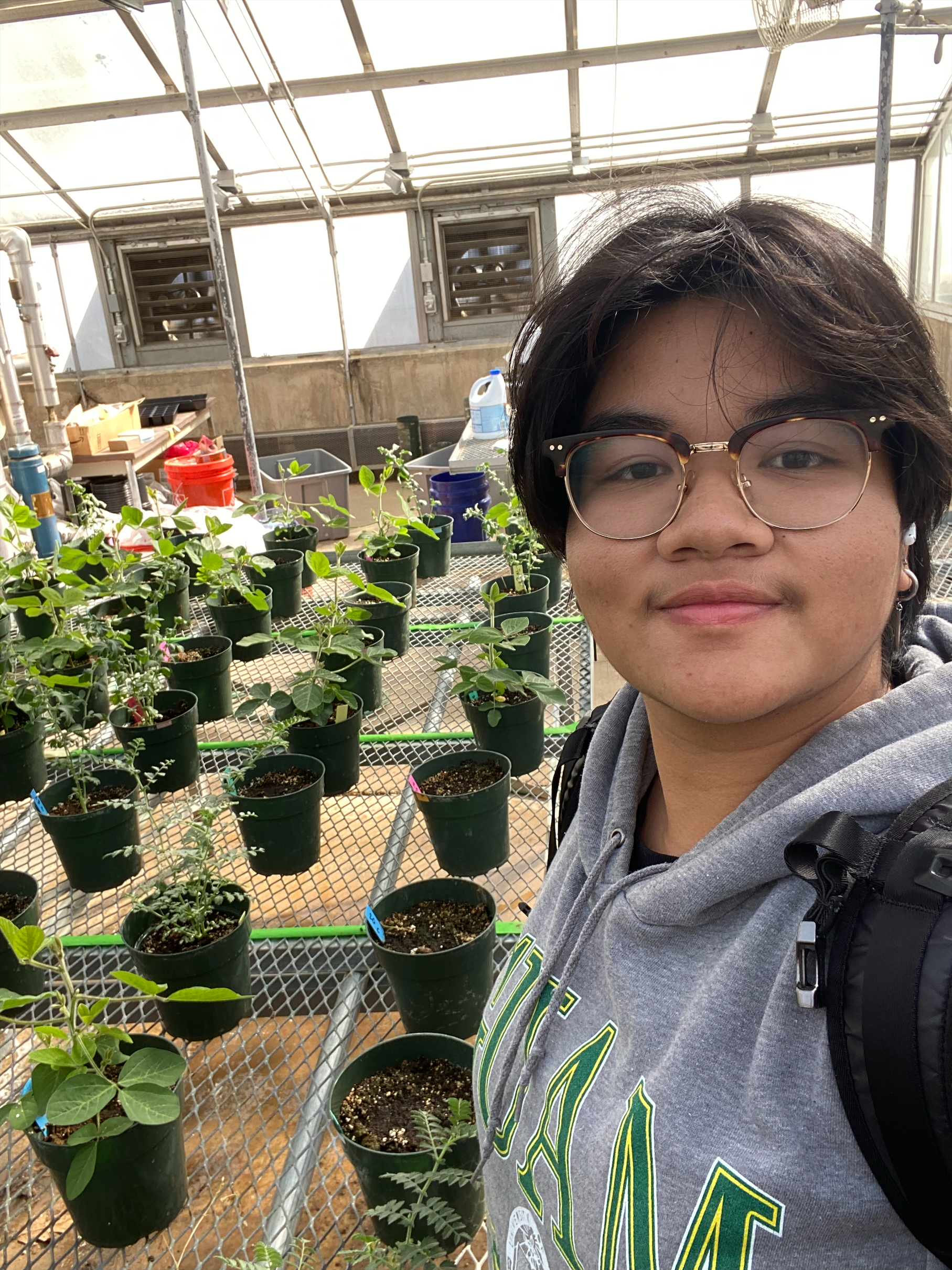
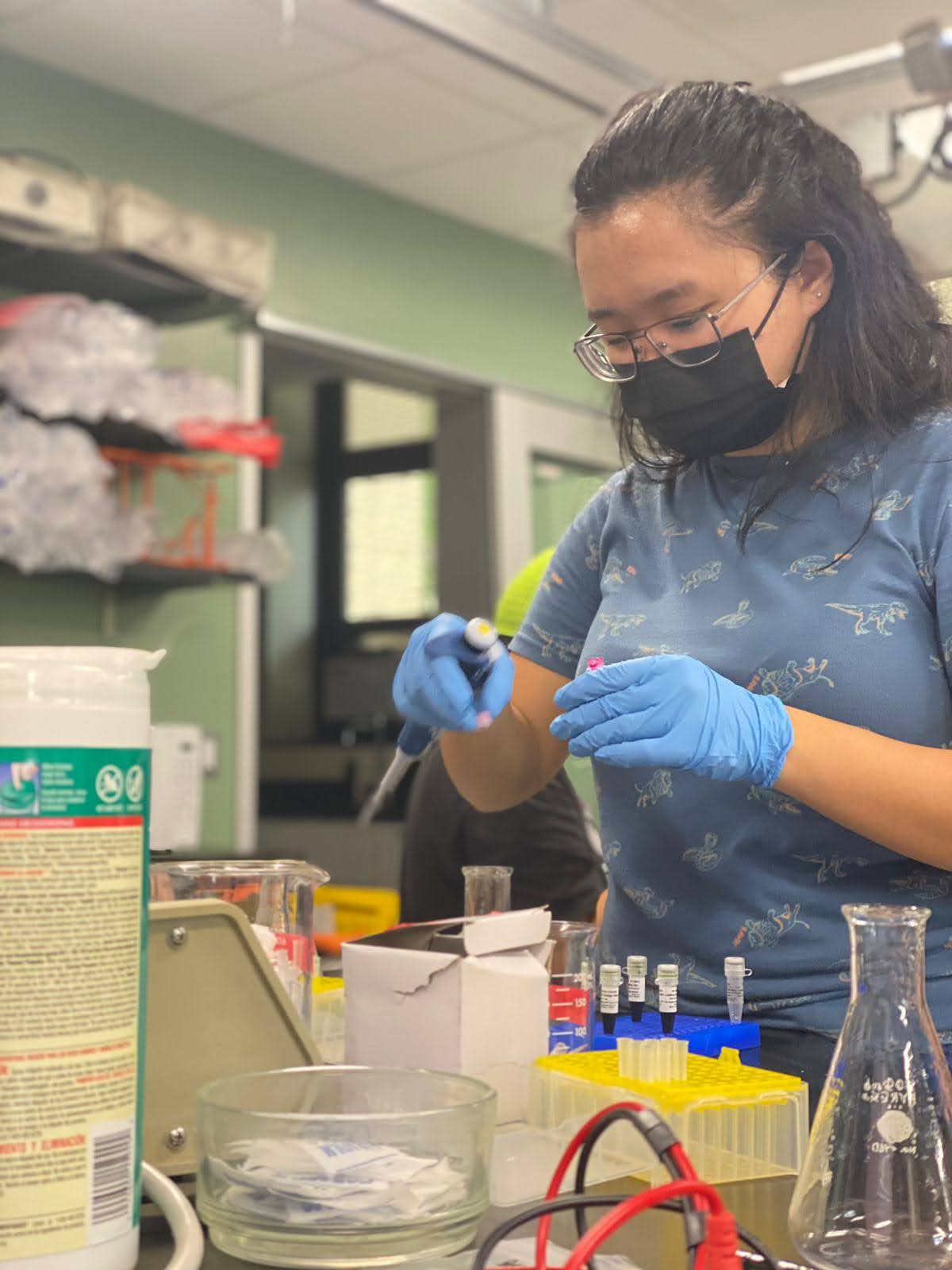

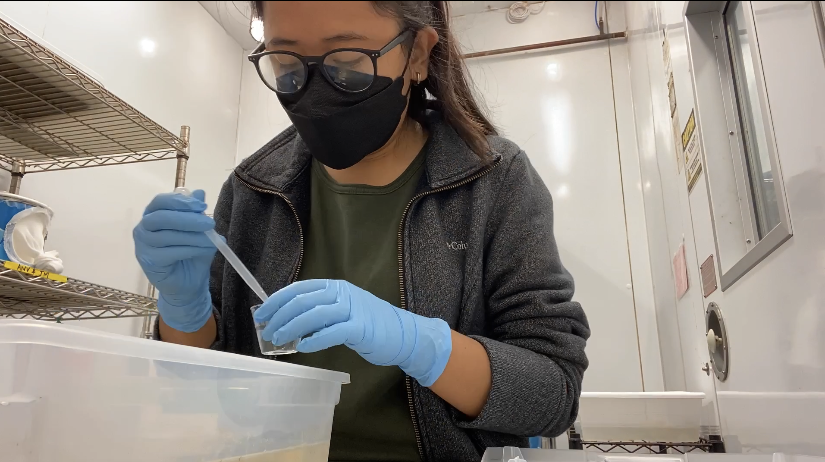

Over the course of eight weeks, five undergraduate students gained valuable scientific experience, discovered more about themselves, and explored different research areas through the NSF INCLUDES: SEAS Bridge to Ph.D. Program held at Pennsylvania State University.
These student researchers include Louise Pascua, Gabriella Prelosky, Anela Duenas, Anna Aguirre, and Merry Remetira.
For these student researchers, it was their first time participating in an off-island research program. The program was held from June to August 2022.
“My experience during the summer was so much fun! I was able to do research on something I had zero experience in which was terrifying but also very enjoyable,” said Louise Pascua, a biology major and a 2022 Guam NSF EPSCoR student researcher. “It’s a little cliche to say, however I do believe that my love for science has been re-ignited. I made many life-long friends and built many professional relationships, while also finding myself.”
During the program, Pascua was placed under the mentorship of Jason Rasgon, an entomology professor at PSU. For her independent research project, she focused on genetically modifying eye color in Culex tarsalis mosquitoes using ReMOT Control. ReMOT Control is similar to CRISPR technology however ReMOT Control injects the adults to send the gene cutting complex to the embryos rather than injecting the embryos directly, according to Pascua.
Anela Duenas, a biology major and 2021 NSF SEAS research fellow, experienced some culture shock when it came to conducting research in a new environment.
“This program made me realize that I am more interested in the ecological aspects of research after working with more hands-on activities in the greenhouse for my project,” said Duenas. “I also experienced a culture shock when first arriving to the United States as it was my first time. A culture shock not only because of a new location but also in science. It was incredible to witness the laboratories and equipment available to students at Pennsylvania State University. Overall, it was very eye opening and made me excited to be in this field.”
Under the mentorship of Francesco Di Gioia, an assistant professor at PSU, Duenas studied alternative growing media for the production of microgreens.
Over the course of the program, the student researchers faced challenges and research areas they were not familiar with all while gaining the skills and knowledge to become confident in their ability to adapt and persevere.
“There was definitely a learning curve with certain aspects of my research just because there were procedures or techniques that I haven’t done beforehand,” said Anna Aguirre, a biology student and a 2021 NSF SEAS research fellow. “However, I did my part with taking notes and trying to be as proactive in learning as I can be and suddenly the learning curve was not so intimidating.”
Aguirre studied plant pathology and environmental microbiology under Sharifa Crandall, an assistant professor at PSU. For her project, she looked at how soil steaming and later final beneficial and pathogenic amendments might affect plant growth.
For one student, this experience helped them learn how to speak up when they need help.
“My main challenge is that I have insecurities when it comes to what I know and what I can offer,” said Merry Remetira, a civil engineering student and a 2021 NSF SEAS research fellow. “This in turn can make me fear reaching out to a mentor and explaining what I really feel. I tend to just accept what is instructed of me and try not to question anything. I was also advised to stop apologizing so much, that to only apologize when responsibility is due. That was a truly enlightening experience and I will work on that challenge.”
Remetira was mentored by Margaret Byron, an assistant professor of mechanical engineering at PSU. For her project, she studied how oil-particle aggregates formed using a roller tank to simulate how particles would interact in the environment.
For Gabriella Prelosky, a biology student and a 2021 NSF SEAS research fellow, being in the program helped renew her excitement for science and her future.
Prelosky studied under Natalie Boyle, an assistant research professor at PSU. Her research project involved calculating the lethal dose curve of 50% of alfalfa leaf cutting bees using an insecticide compound known as acetamiprid in varying doses.
“This experience most definitely has affected my goals. Before participating in the bridge program, I was almost certain I did not want to pursue a master’s degree after graduating next spring due to extreme burnout, but this program showed me both the highs and lows in a positive light. I now know that after a break, I am definitely going for a master’s,” said Prelosky. “My advice for this program, but also others, be confident in yourself. Things may not go how you want it the first time, but the more you fall, the more you learn!”
